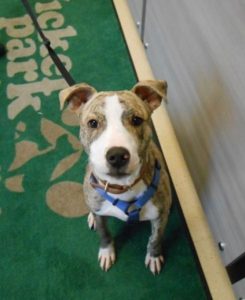Highland Park Vet Pet Vaccines
Just like humans, pets need immunizations and vaccines to maintain good health. Not only are their different vaccines for different types of pets and diseases, but there are also different combinations as well. There are risks and benefits for different vaccinations that should be considered for every pet, related to their specific lifestyle and health.
There are 2 different types of Vaccines for both Dogs and Cats. There are called Core Vaccines and Non-core Vaccines. Core vaccines are considered a top priority for all pets based on risk, severity, or transmissible to humans.
Pets can show reactions to vaccines just like humans but may be minor or may require immediate care. Some clinical signs may include:
- Fever
- Sluggishness
- Loss of appetite
- Facial swelling and/or hives
- Vomiting
- Diarrhea
- Pain, swelling, redness, scabbing or hair loss around the injection site
- Lameness
- Collapse
- Difficulty breathing
- Seizures
- Lameness
 Highland Park Vet Dog Vaccines
Highland Park Vet Dog Vaccines
We can provide all vaccines for your dog based on their daily lifestyles or any contracted diseases. Ask us as many questions to help you feel more comfortable about your dogs and what vaccinations below are considered Core Vaccinations or Non-core Vaccinations. Your veterinarian can determine what the best vaccination schedule is for your pet. This will be dependent on their age, environment, lifestyle, and medical history.
Vaccinations that we administer:
- Rabies 1-year
- Rabies 3-year
- Distemper
- Parvovirus
- Adenovirus
- Parainfluenza
- Bordetella bronchiseptica
- Lyme disease
- Leptospirosis
- Canine influenza
 Highland Park Vet Cat Vaccines
Highland Park Vet Cat Vaccines
Cat vaccinations start being administered around 6 to 8 weeks old and are done in a series of about 3-4 week intervals. Adult cats can be revaccinated annually or every 3 years. Talk to your vet about setting up the best vaccination schedule.
Cat Vaccinations we administer:
- Rabies
- Feline Distemper
- Feline Herpesvirus
- Calicivirus
- Feline Leukemia Virus
- Bordetella
- Allergy
- Blood Pressure
- Capnography
- Chip Implantation
- Dental Cleaning
- Dietary Management
- EKG
- Emergency
- Geriatric Care
- Kitten
- Pet Preventive Care
- Pet Laboratory Testing
- Pet Vaccines
- Pulse Oximetry
- Puppies
- Surgery
- Travel Certification
- Ultrasound
- X-Ray



